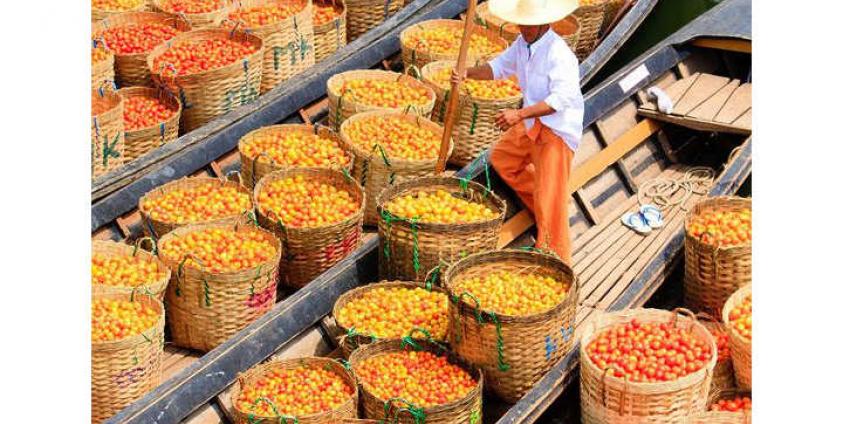SENG PHOO — COVID-19 lockdowns have killed sales from the profitable produce trade in Taunggyi, merchants told SHAN. Sales in the Shan State capital started declining before the Water Festival (Burmese New Year) scheduled to start on Friday was cancelled to stop the spread of the novel coronavirus.
Nang Moe Moe Win, a garlic seller told SHAN, the lockdown has really hurt her business.”Our wholesale shop is still open but there aren’t villagers coming to sell their produce and there aren’t any more buyers.”
“It’s the time to harvest tomatoes,” Ko Phoe Hla Min, the owner of Innlay Tomato Wholesale, told SHAN. “We used to sell tomatoes to five different areas; now I only send tomatoes to two.”
To halt the novel coronavirus, the government reduced transportation in much of the state, delaying the delivery of fruits and vegetables. The New Year—or Maha Thingyan, as it’s locally called—is usually when produce sales are high but the lockdown has drastically reduced profits for many farmers and fresh food merchants.
The government’s new measures haven’t affected sales for pigeon pea, corn and sesame, said Aung Zay, the secretary of a wholesale association in southern Shan State.”It’s still workable; it doesn’t affect us,” but admitted he’s unaware how bad the lockdown as been on other produce markets.
About three billion people are under COVID-19 lockdown. During this time, large economies have reported lower productivity. The US’s GDP is down 29 percent, setting a new record since it became a nation. Yet, the virus’s impact threatens to harm the economies of developing countries disproportionately more than for the larger economies, according to a recent article on the United Nations Development Programme’s (UNDP) website, where projected income losses are estimated at US$220 billion for the emerging markets.
“With an estimated 55 per cent of the global population having no access to social protection, these losses will reverberate across societies, impacting education, human rights and, in the most severe cases, basic food security and nutrition,” the UNDP said.







